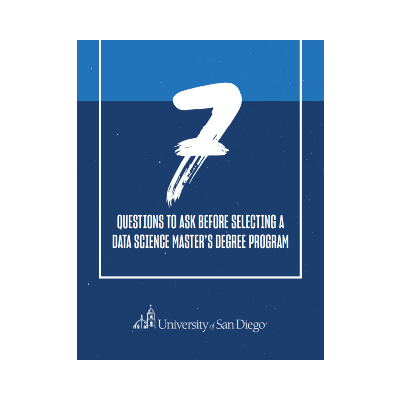You’ve probably heard the expression, “Data is the new oil.” It’s a nod to the reality that data is incredibly valuable as the fuel that drives our modern economy. Working behind the scenes are the skilled, in-demand database developers who help make our data-driven world go ‘round.
With salaries that often reach six figures, the database developer career path is an outstanding opportunity for those with the right aptitude, education and experience. Read on to explore database developer responsibilities, career and salary outlook, key skills, certifications, education and more.
What is a Database Developer?
A central role of the database developer is to help organizations improve the way they utilize data to enhance operational efficiency and uncover valuable business insights and potential opportunities.
To extract optimal value from internal and external data, the data must be organized and made accessible using systems that require both creativity and technical skill to build and maintain. This is where the database developer enters the picture.
According to Database Star, “A database developer is an IT professional who is responsible for creating databases and database software.” Furthermore, “They design databases and work on the code that sits between an application and the data in a database.”
What Does a Database Developer Do?
While the roles and responsibilities of a database developer vary depending on the position and employer, there are standard processes that most database developers can expect to be a part of when working in this field.
The fundamental role of a database developer is to research and analyze an organization’s information needs and, subsequently, to convert the findings into an efficient programming code that accommodates those needs.
Oracle Corporation explains, “A database developer creates databases to suit business needs and improves existing databases by expanding their range or functionality,” adding that professional database developers may also be tasked with making decisions “related to appropriate database languages and technologies, while ensuring development projects comply with database rules.”
According to Oracle, typical database developer responsibilities may include:
- Retrieving data for reports
- Creating, modifying and removing data as required by a specific application
- Designing or updating databases
- Developing new database applications
- Converting legacy applications to work with a specific database setup
[DOWNLOADABLE CHECKLIST] Want to enhance your database development skills? Learn how a master’s in data science can help you build a successful career.
Database Developer vs. Database Administrator
Database configuration and management often include a team of professionals who carry out different functions. Closely related to the database developer role is the database administrator (DBA).
Discover Data Science reports that “at the center of almost every organization’s information storage and data mining operations are the database developer and database administrator.” Although these two positions both work closely with database systems, their day-to-day responsibilities are quite different.
What’s the Difference Between a Database Developer and a Database Administrator?
While database developers are responsible for developing new database applications and improving the functionality of existing databases, DBAs are primarily focused on maintenance tasks that ensure databases are secure and run smoothly on a daily basis. Developers are less concerned with those daily maintenance tasks and more focused on optimizing the way the organization uses data.
A database developer can expect to carry out the following tasks daily:
- Designing new databases to satisfy customer and user needs
- Developing database code to carry out specific tasks, such as extracting data for reports, implementing updates or removing data
- Updating existing databases
- Generating business reports based on database insights
- Enforcing database standards and requirements for new IT and business applications
- Establishing IT documentation for new and existing databases
| Job Title | Database Developer | Database Administrator |
| Education Requirements | Bachelor’s degree in computer science or related field, master’s degree required by some employers | Bachelor’s degree in computer science or related field |
| Median Annual Pay | $92,686 | $91,249 |
| Job Focus | Developing databases and modifying existing databases to better serve business needs | Maintaining database functionality and monitoring daily operations |
| Job Growth Outlook (2020-2030) | 9% (faster than average; includes all database administrator and architect roles) | 9% (faster than average; includes all database administrator and architect roles) |
Median annual pay sources: Developer, Administrator
Please note that salary numbers will fluctuate based on the latest data.
Database Developer Education Requirements
When hiring database developers, most employers prioritize applicants who have earned a post-secondary degree. Zippia reports that 68.5% of database developers hold a bachelor’s degree, and 19.2% of database developers have earned master’s degrees. While it is possible to become a database developer with an associate’s degree or even a high school diploma, the overwhelming majority of database developers hold bachelor’s degrees or higher.
Selecting the right major is an important step in becoming a professional database developer. According to Zippia, bachelor’s degrees in computer science are the most popular route, with 30% of database developers holding this type of degree. However, it is common for database developers to have bachelor’s degrees in other related fields, such as engineering, information technology, mathematics and even business administration.
No matter which route you take when selecting your major, you should complete as many courses in database-related subjects as possible to impress potential employers. The most beneficial course of study will consist of classes in various database packages and programming languages, including Microsoft, Oracle, IBM, SQL and ETL.
If you’re hoping to climb the career ladder in the database development industry, consider graduate studies. Keep in mind that more advanced positions in this field may require a master’s degree, and sometimes even a doctoral degree.
A master’s degree in data science, such as the online Master of Science in Applied Data Science, provides students with a solid foundation and technical skills vital to the success of a prospective database developer.
[RELATED RESOURCE] Ready to advance your career? Use our guide to select the master’s program that aligns with your professional goals.
Key Certifications & Technologies for Database Developers
Beyond securing the educational background needed to become a database developer, you can supplement your formal education and bolster your resume by completing certification programs. Having a few certifications under your belt can help you stand out when applying for database developer jobs at the entry level.
Discover Data Science recommends these certification programs for specific software frameworks:
- Microsoft Certified Database Administrator (MCDBA)
- Microsoft Certified Solutions Expert: Data Management and Analytics
- Oracle Database Certifications
- IBM Certified Database Administrator – DB2
You may also want to consider vendor-neutral certifications, i.e. certification programs not tied to a specific database software product, such as:
- ICCP Certified Data Professional
- ICCP Certified Big Data Professional
- ICCP Public Sector Data Governance Professional
Indeed suggests the following Microsoft, Oracle and IBM certifications as suitable for database developer entry level jobs and beginners looking to boost their resumes:
- Oracle Database Certified SQL Associate
- Microsoft Certified: Azure Data Fundamentals
- IBM Certified Database Associate – DB2 11.1 Fundamentals for LUW
Skills & Capabilities to Become a Database Developer
In addition to educational credentials and certifications, Discover Data Science reports that requirements for aspiring database developers may include soft and hard skills, such as:
- Excellent oral and written communications skills
- Excellent analytical skills
- Thorough knowledge of physical database design and data structures
- In-depth understanding of data management (e.g. permissions, recovery, security and monitoring)
- Ability to recognize the relationship between data elements
- Experience in project management
- Knowledge of database objects including tables, indexes, views and statistics
- Knowledge of ETL and BI tools
- Ability to work under pressure of deadlines
- Proficiency in SQL with the ability to write complex SQL queries and other features
- Troubleshooting any issues that arise with new database applications, and providing solutions to implement
- Applying technical design and development skills to the creation of database programs
- Analyzing existing databases and data needs of clients to develop effective systems
- Using knowledge of specific programming languages and codes
- Following implementation processes for new databases
According to Database Star, more technical skills and capabilities are also needed to excel in the field of database development. These skills include:
- SQL development in one of the database management systems, e.g. Oracle or Microsoft SQL Server
- Database design: the ability to analyze a business domain, and create a data model and normalized database from it
- Transactional language SQL in a specific system, e.g. Oracle PL/SQL, Microsoft T-SQL
Oracle advises aspiring database developers to focus on developing their SQL and programming skills, as these fundamentals are highly transferable to other platforms. When it comes to SQL, Database Star notes that database developers should be well-versed in and able to complete the following tasks:
- Inserting data into a table
- Updating existing data in a table
- Deleting data from a table
- Retrieving data from a table using a variety of techniques, such as aggregate functions, subqueries, ordering and grouping
- Tabling aliases and column aliases
- Creating joins
- Using functions
- Creating, updating, deleting tables
- Assessing what a primary key, foreign key, and other constraints are, and creating them
- Generating and understanding an execution plan
- Using functions like Transactions, commit, rollback and locking
- Creating and using functions, stored procedures, views, indexes, and other database objects such as synonyms and sequences
Other in-demand skills to help you become a database expert include:
- A deep understanding of the ETL process (Extract, Transform, Load) for data warehousing
- SQL development in two or more database management systems
- A deep understanding of operating systems (Windows, Unix, Linux, etc) for writing scripts or basic administration tasks
- Knowledge of SQL and databases for improving the performance of your code (best practices, indexes, in-built performance features, etc.)
Database Developer Career Path & Advancement Trajectory
While the position of database developer is not typically an entry-level role, there are related job types that can serve as helpful springboards to help advance along this career path.
Here are a few entry-level positions that can help pave the way for your role as a database developer:
- Computer/software programmer
- Database administrator
- Database application designer
- Data reporting analyst
- Data warehouse analyst
- Information technology analyst
Reaching the title of database developer is not where this career path stops. Once you have substantial experience in the industry, you can move on to more advanced career options such as:
- Data architect
- Data manager
- Big data engineer
- Chief information officer
According to Zippia, the sky’s the limit when it comes to the potential trajectory of a database developer career. After many years of experience and depending on your specific skill set and areas of interest, apex positions could include roles such as:
- Director of software development
- Product owner
- Senior information technology manager
- Systems manager
- Application manager
- Senior delivery manager
- Chief technology officer & founder
Database Developer Salary & Career Outlook
Oracle reports that “the database developer role is already among the highest paid in any given market with entry-level positions commanding much higher salaries than national averages.”
Although it may fluctuate depending on the most recently reported salaries, as of November 2022, the average annual salary for database developers is $92,686. With added experience and technical skills, aspiring database developers can expect their earnings to grow significantly.
Zippia reports that entry-level database developer positions average a starting annual salary of $69,000, while the top 10% of earners average $118,000 per year. The industries that offer the highest database developer salaries include technology, finance and media.
Working as a database developer could mean finding employment with some of the world’s largest and most influential companies. According to LinkedIn, the top companies currently hiring database developers are:
- Salesforce
- Bank of America
- Fidelity Investments
- Moody’s Investor Service
- University of Washington
- California Department of Public Health
- Humana
- Gallup
- Oracle
- Cisco
6 Steps to Become a Database Developer
Though the route you take to become a database developer depends on many different variables and preferences, Database Star provides these steps to help serve as a straightforward guide to becoming a professional database developer:
- Step 1: Earn a bachelor’s degree in computer science or a related discipline
- Step 2: Assemble a portfolio of work
- Step 3: Gain real-world experience through volunteer work
- Step 4: Build your resume
- Step 5: Update your professional profiles
- Step 6: Apply for database developer positions




